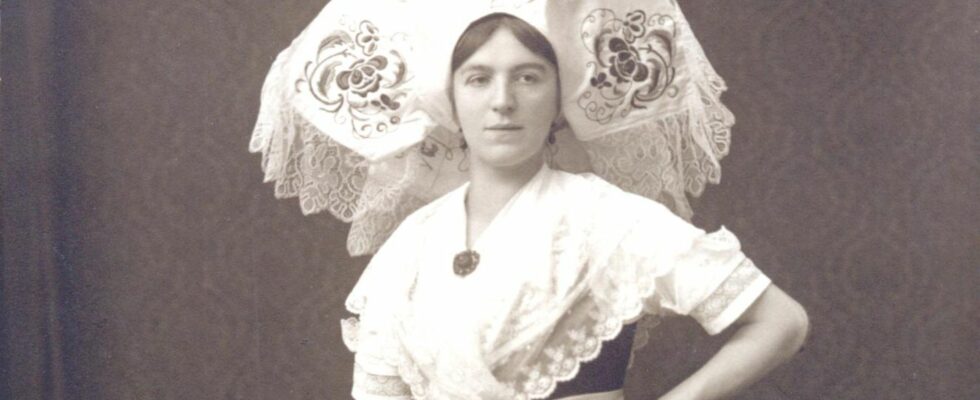Poet and writer
Mina Witkojc – How a Sorbian journalist defended the heritage of her culture
The writer and poet Mina Witkojc campaigned for her Sorbian culture and tradition
© Serbian Cultural Archives/Sorbian Cultural Archives
Mina Witkojc began to think about her origins at an early age. The poet and writer was very keen to preserve her Sorbian identity and culture. Today would have been her birthday.
Born on May 28, 1893 as the daughter of a Wendish maid and an innkeeper in Burg in the Spreewald, Mina Witkojc attended the local village school. She discovered her love of literature at the high school in Cottbus. After living as a day laborer in Berlin for several years, she moved to Bautzen in 1922, a city with a higher Sorbian population.
Growing up in a Sorbian family, she was familiar with the Sorbian language and culture from an early age and processed them in poems and essays, which she later published as a journalist in various Sorbian and German magazines. She often used images of nature to express her deep love for her culture and homeland. She also translated poems from other Slavic languages. Eventually she became editor-in-chief of the Lower Sorbian newspaper Serbski Casnik (“Sorbian Newspaper”).
Mina Witkojc fought for the preservation of Sorbian culture
She was also active as an activist. As a member of various Sorbian clubs and organizations, she was committed to preserving Sorbian culture. But it was precisely her fight for her people that caused conflicts in the 1930s under the pressure of National Socialism. When the National Socialist government banned the Sorbian languages and completely prohibited her from writing, she had to leave Serbski Casnik. Because she continued to express her self-confident and fearless commitment to her homeland in her texts and poems and also maintained contact with intellectuals of other Slavic nationalities, she was first banned from the Dresden administrative district in 1941 and from the Frankfurt/Oder administrative district in 1942. This forced her to leave Lusatia. She returned to Bautzen where she was later briefly arrested for hanging up Sorbian-language posters for the local elections.
In 1954 she returned to Burg and continued writing. She published poems and stories in Nowy Casnik and brought out a volume of poetry entitled K swětłu a słyńcu (To the Light, to the Sun). In 1964 she received the Ćišinski Prize. She continued her literary and cultural work in exile and remained an important voice of Sorbian culture until her death on November 11, 1975.
Today, two schools and a library in Burg bear her name. A street in Cottbus is named after her. Activists of the Sorbian language are awarded the Mina Witakojc Prize.
Sources: Googlewatchblog.com,Rubinero’s Martell, domowina.de, Sorbian Cultural Archive


